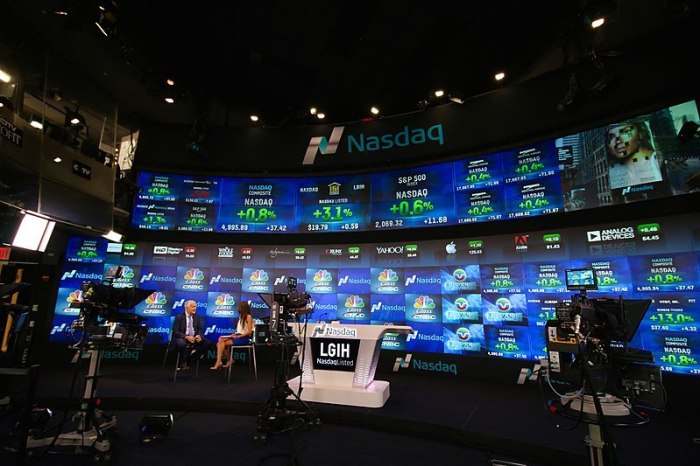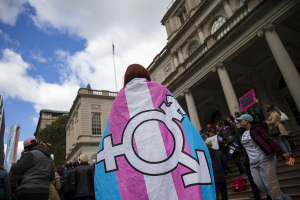Nasdaq’s DEI requirements for listed companies struck down

A federal appeals court has overturned Nasdaq's initiatives to impose diversity targets on the boards of its listed companies, another blow to the push for corporate diversity, equity and inclusion policies.
The 5th U.S. Circuit Court of Appeals ruled last Wednesday that the Securities and Exchange Commission erred in its 2021 approval of Nasdaq's board diversity listing rule that required listed entities to disclose board diversity statistics and meet minimum diversity benchmarks overtime or explain their non-compliance.
The ruling responds to challenges brought by two conservative groups who contested the SEC's approval, arguing that these requirements effectively set quotas, which they claimed were illegal. Specifically, Nasdaq-listed companies were required to have, or explain why they do not have, two diverse directors, including one who identifies and female and one who identifies as either an "underrepresented minority" or "LGBTQ+."
Judge Andrew Oldham, a Trump appointee, writing for the majority, criticized the SEC's overreach into areas beyond its usual regulatory scope laid out by the Exchange Act of 1934, saying it could lead to discrimination.
"The Board Diversity Proposal is far removed from these ordinary applications of the concept of just and equitable principles of trade. It is obviously unethical to violate the law or to disregard a contractual promise. It is not unethical for a company to decline to disclose information about the racial, gender, and LGTBQ+ characteristics of its directors," the majority opinion reads.
"We are not aware of any established rule or custom of the securities trade that saddles companies with an obligation to explain why their boards of directors do not have as much racial, gender, or sexual orientation diversity as Nasdaq would prefer."
"If there is such a custom, SEC did not cite it in its approval order," the ruling continues. "It said only that the Board Diversity Proposal would satisfy some apparently important investors who demand diversity information."
In dissent, Judge Stephen Higginson, an Obama appointee, argued that Congress carved out only a "limited" role for the SEC to oversee "private ordering through rules proposed by self-regulatory organizations," noting that Nasdaq is a "private, limited liability company."
"The majority, however, overlooks this limited SEC role, fixed by Congress, and instead creates a new, mandatory and enlarged role for SEC intervention, ordering the SEC to displace largely private ordering with alternate policy priorities," Higginson wrote. "The majority interprets the Exchange Act to require the SEC 'to clip SRO authority' whenever an SRO does not sufficiently show 'some connection to the ails Congress designed the Act to eradicate.'"
In response to the ruling, Nasdaq released a statement saying it will respect the court's decision and does not intend to "seek further review." However, it maintains that the "rule simplified and standardized disclosure requirements to the benefit of both corporates and investors."
The SEC, on the other hand, is considering its next steps, which could include a potential appeal to the U.S. Supreme Court, an SEC spokeswoman told The Wall Street Journal.
Sheng Li, litigation counsel for the New Civil Liberties Alliance, told the outlet that the ruling recognized that neither the SEC nor Nasdaq should dictate the demographic makeup of corporate boards.
Li stressed that the policies undermined individuality and compelled companies to categorize people based on gender, race and sexual orientation.
The court's decision comes amid a pushback against what conservatives have called "woke" policies across various sectors, impacting affirmative action and environmental, social and governance (ESG) investing strategies.
Republican attorneys general from two dozen states backed the lawsuit, arguing that the diversity mandates were unconstitutional.
However, a coalition of Nasdaq-listed companies such as Airbnb, Microsoft and Starbucks supported the diversity rules, alongside civil rights organizations like the American Civil Liberties Union and the NAACP Legal Defense and Educational Fund.
In recent years, several major American companies have ceased efforts to embrace the progressive DEI initiatives following the 2023 U.S. Supreme Court ruling striking down the University of North Carolina's and Harvard University's admissions policies, which used race as a factor in student acceptance.
Earlier this year, major retailer Tractor Supply Co. announced it was working to "eliminate DEI roles and retire our current DEI goals while still ensuring a respectful environment," in addition to vowing to "no longer submit data to the Human Rights Campaign," an LGBT activist organization. The move came after conservative influencer Robby Starbuck called for a boycott of the company over its "DEI council" and "DEI hiring practices."
In November, Walmart said it would scale back its diversity, equity and inclusion policies amid the threat of a pressure campaign from Starbuck.





























